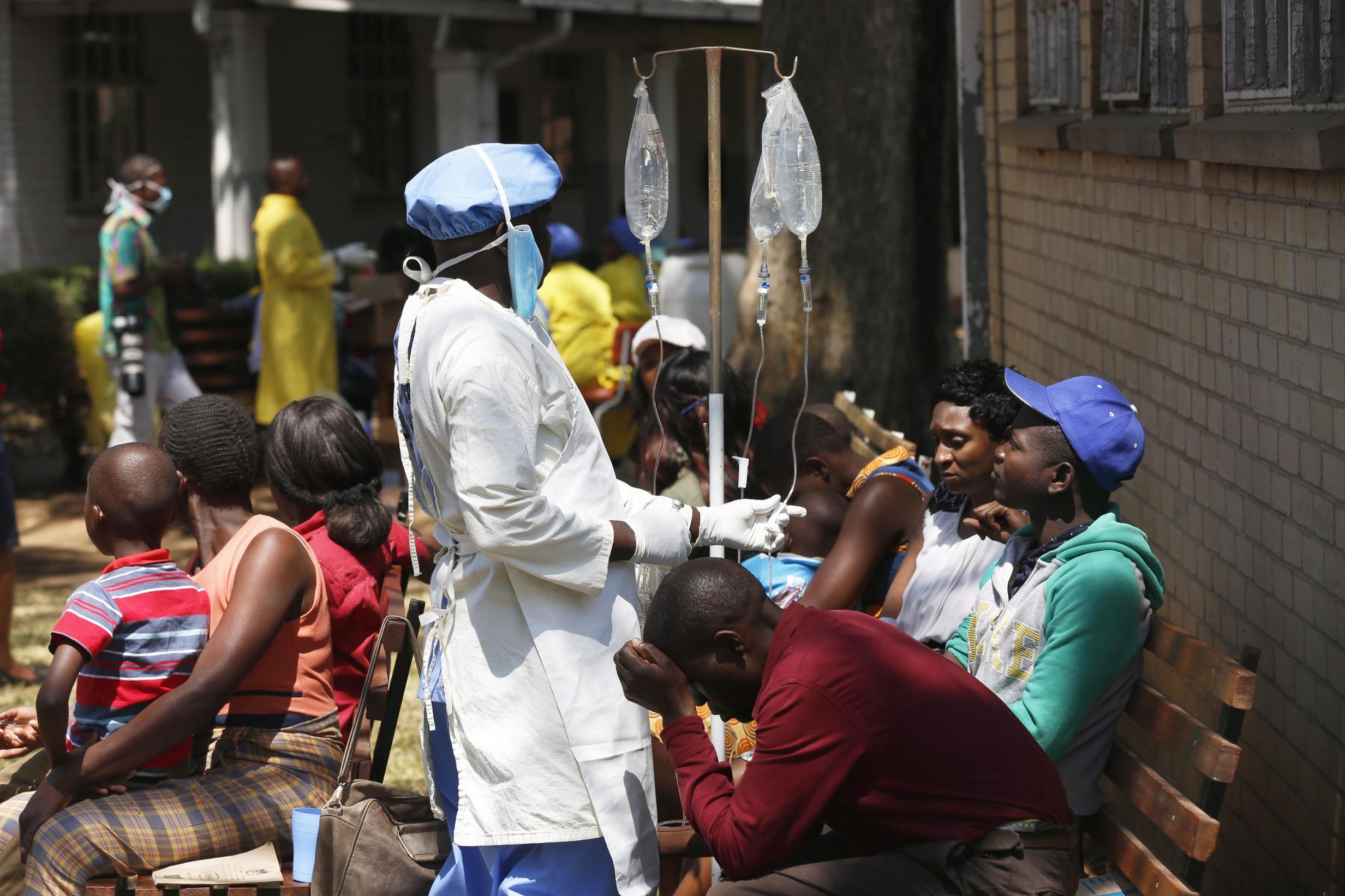Zimbabwe declares cholera outbreak after 20 confirmed deaths from disease in capital Harare
More than 4,000 people died during country's last major outbreak in 2008

Your support helps us to tell the story
From reproductive rights to climate change to Big Tech, The Independent is on the ground when the story is developing. Whether it's investigating the financials of Elon Musk's pro-Trump PAC or producing our latest documentary, 'The A Word', which shines a light on the American women fighting for reproductive rights, we know how important it is to parse out the facts from the messaging.
At such a critical moment in US history, we need reporters on the ground. Your donation allows us to keep sending journalists to speak to both sides of the story.
The Independent is trusted by Americans across the entire political spectrum. And unlike many other quality news outlets, we choose not to lock Americans out of our reporting and analysis with paywalls. We believe quality journalism should be available to everyone, paid for by those who can afford it.
Your support makes all the difference.Zimbabwe has declared a cholera outbreak in the country’s capital after 20 died from the disease.
More than 2,000 people have also been infected in Harare by drinking contaminated water, the country’s new health minister, Obadiah Moyo, said on Tuesday.
The deaths have raised fears of a repeat of the 2008 cholera outbreak which killed more than 4,000 people, according to government figures.
The current outbreak is believed to be caused by poorly-maintained water and sanitation infrastructure.
After touring a hospital where patients were being treated, Mr Moyo warned reporters that the outbreak could spread to other parts of the country.
“The numbers are growing by the day and to date there are about over 2,000 cases, that is quite a big number,” the minister said.
“This whole problem has arisen as a result of blocked sewers. The other problem is that garbage has not been collected on a regular basis. There is water problems, no water availability.”
Mr Moyo said the selling of meat and fish in the affected suburbs has been banned and the government has suspended classes at some schools in at-risk areas.
Zimbabwe’s government has asked United Nations agencies and private companies to supply portable water and assist with treating the growing number of patients.
Cholera is a bacterial disease which is spread by ingesting contaminated food or water and can spread easily in areas with inadequate sewer systems.
Mr Moyo was recently appointed to the position of health minister by Zimbabwe’s president, Emmerson Mnangagwa, and was sworn into the country’s cabinet on Monday.
Since his appointment was announced last week, Mr Mayo has faced accusations he had falsified his medical qualifications, with local papers questioning why his qualifications do not appear to be officially registered with Zimbabwe’s medical council.
Additional reporting by agencies
Join our commenting forum
Join thought-provoking conversations, follow other Independent readers and see their replies
Comments